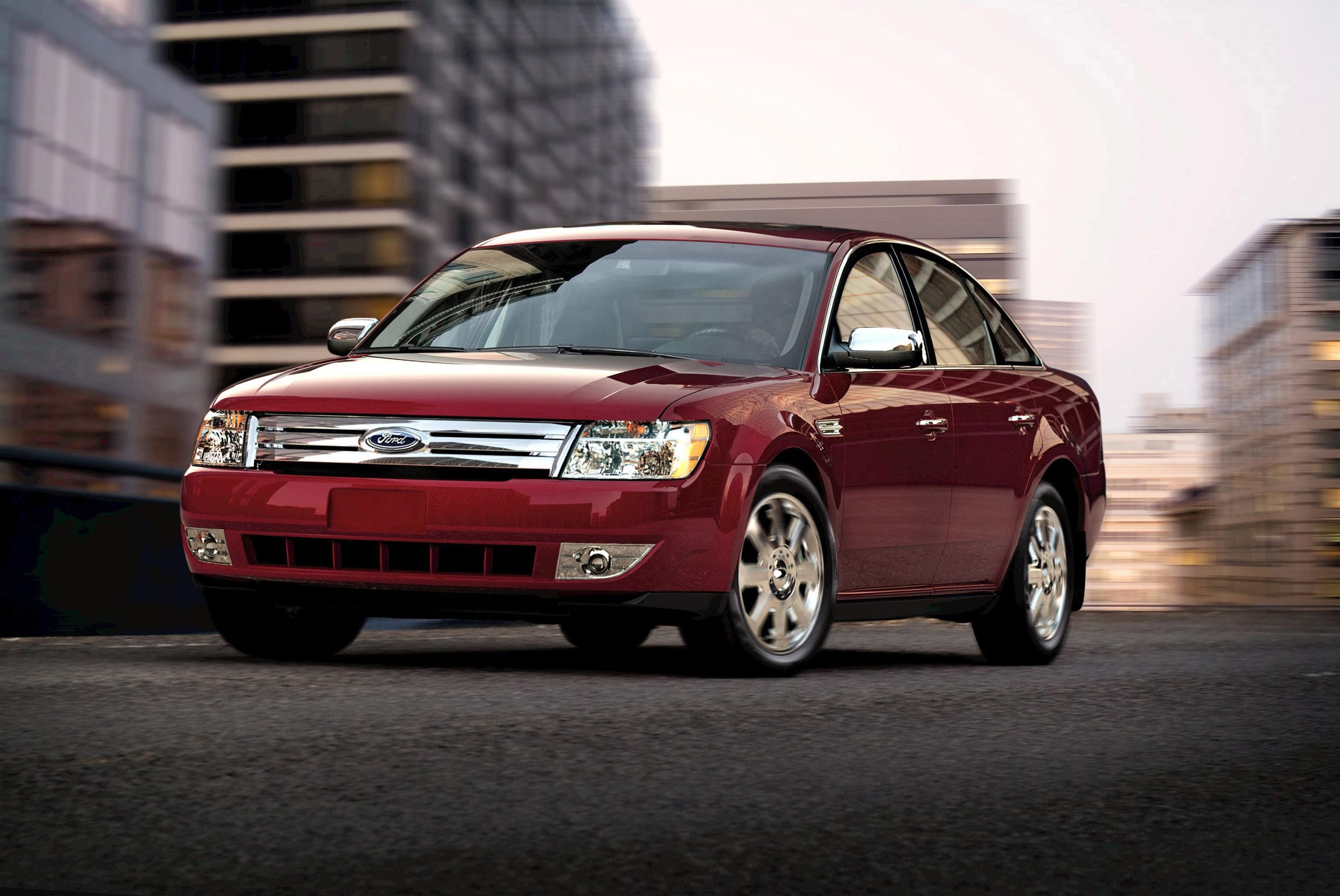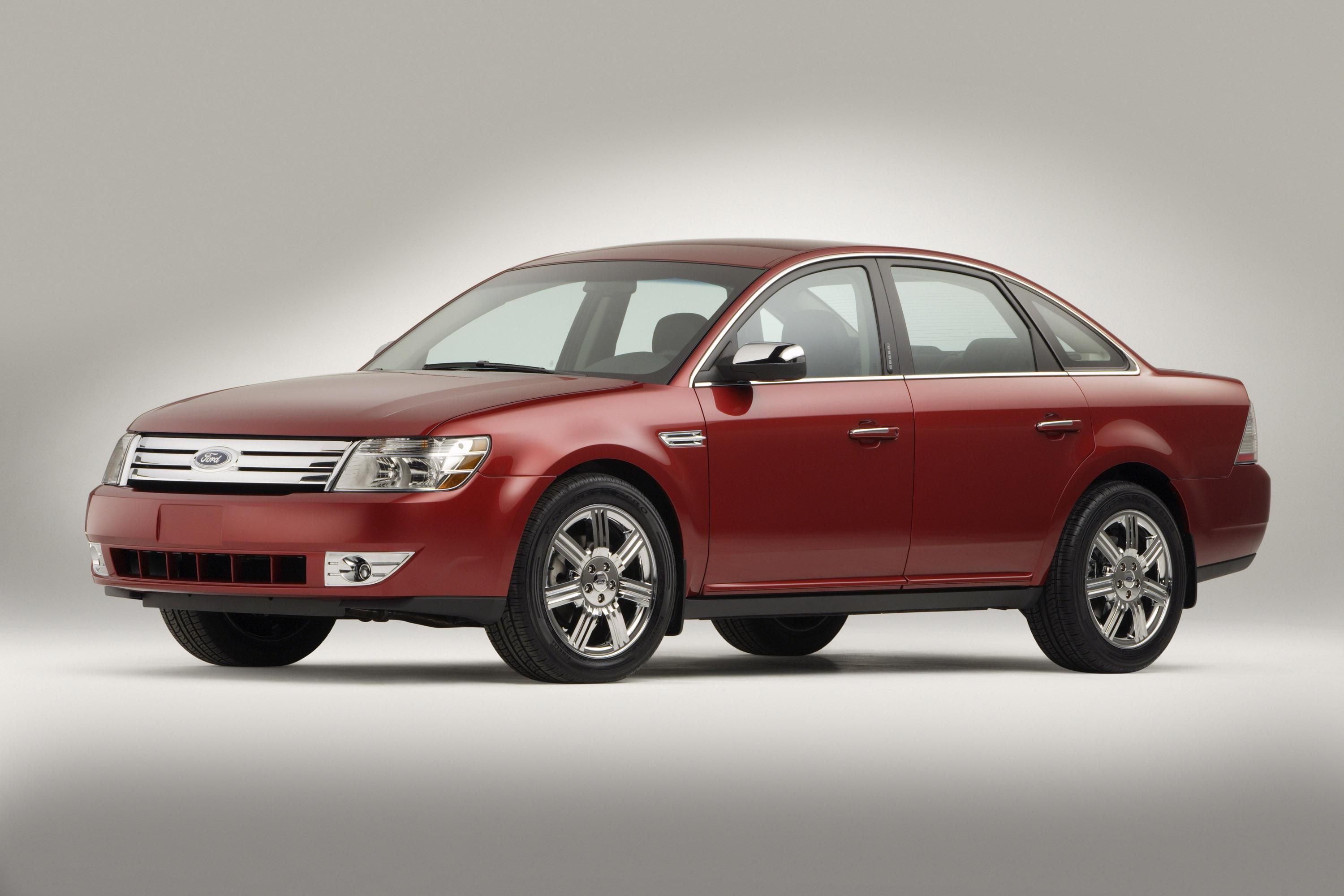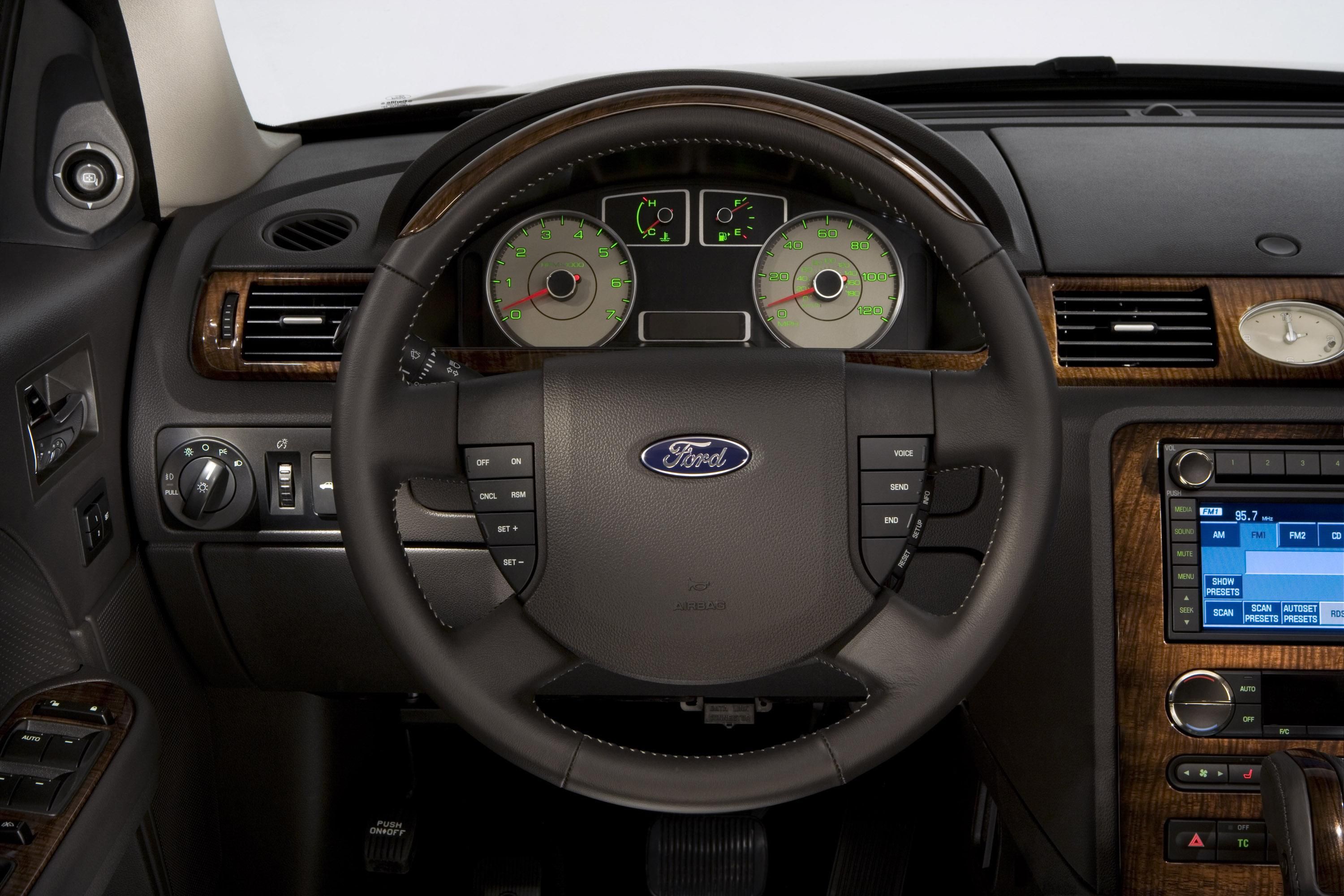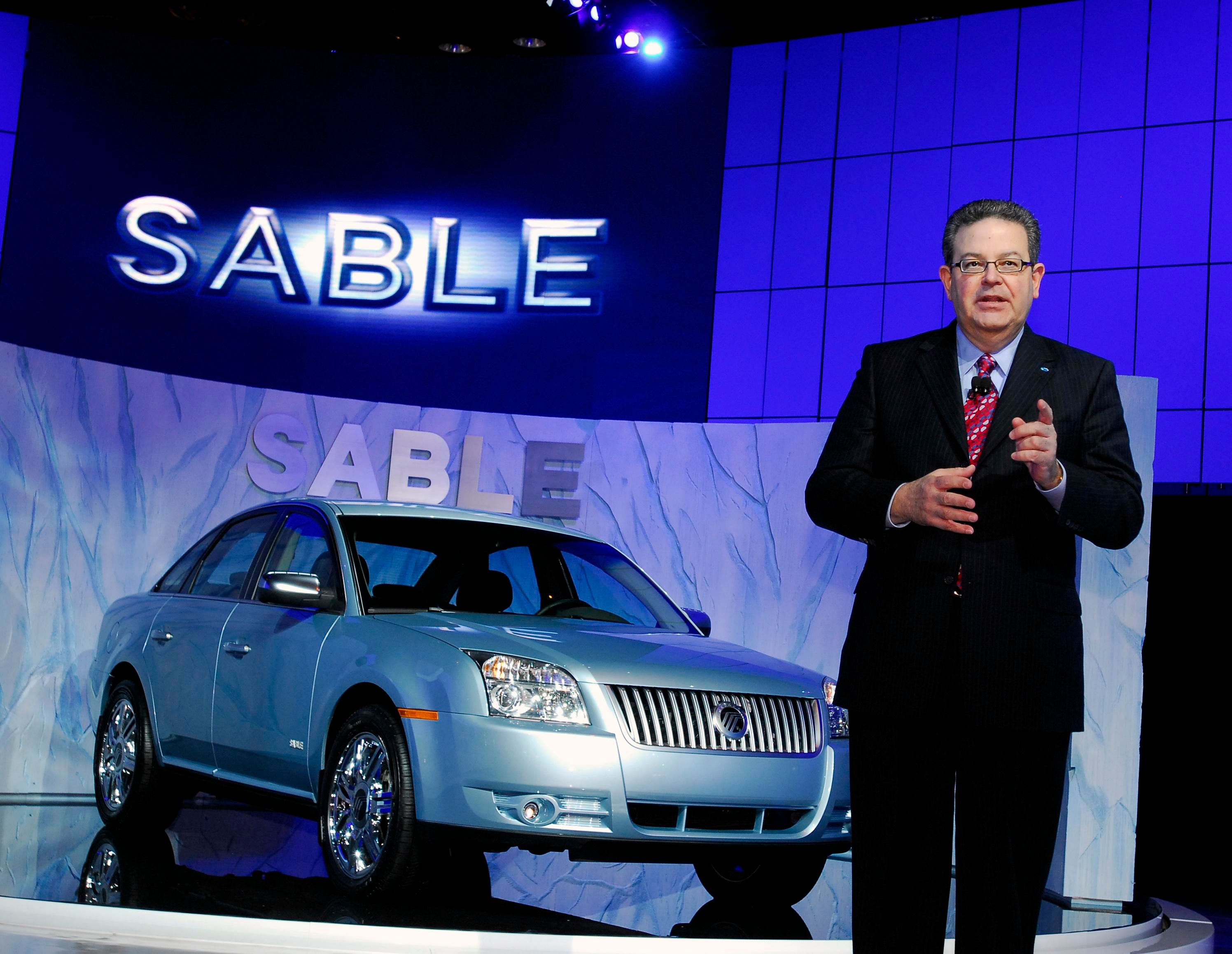The 2008 Ford Taurus and Mercury Sable will arrive in showrooms this summer bearing Top Safety Pick ratings by the Insurance Institute for Highway Safety (IIHS) and the government’s highest available five-star ratings in all crash test categories.
The IIHS' "Top Safety Pick" rating can only be earned by vehicles that achieve the best-available safety performance in frontal, side and rear collisions and offer electronic stability control. In addition to being the only large family cars to merit IIHS' Top Safety Pick rating, these sedans stand alone for also earning five-star driver and passenger crash test ratings from the National Highway Traffic Safety Administration (NHTSA).
“It’s a true testament to the safety engineering of these vehicles that they achieved top crash test ratings from both IIHS and NHTSA,” said Sue Cischke, senior vice president of Sustainability, Environment and Safety Engineering, Ford Motor Company. “Ford and Volvo worked together to leverage our technical and intellectual resources to create this outstanding vehicle architecture, and now it's better than ever. These cars offer it all: safety, power, spaciousness, comfort and great features, all at a great value."
The Insurance Institute also gave both vehicles its highest rear impact rating for offering effective protection against neck injuries, as well as its highest front and side impact ratings for withstanding intrusion into the occupant compartment.
The structure of the Taurus and Sable is engineered with crush zones designed to direct excess energy around the passenger compartment into a high-strength safety cage. An innovative cross-car beam “SPACETM Architecture” under the front seats reinforces the structure between the B-pillars, which helps direct energy away from passengers.
Both vehicles offer an industry first two-row Safety Canopy™ side air bag system that provides additional protection not only in side impact collisions, but also deploys in rollover accidents. Side-impact protection comes from a combination of air bag technology and structural features that help safeguard occupants from intrusion by channeling crash energy away from the passenger compartment.
An advanced air bag controller uses front passenger classification sensing to determine if the seat is occupied, and if so, whether the passenger is a larger or smaller person. Air bag deployment is tailored – or altogether suppressed – to help provide an appropriate level of protection. The lower anchors and tethers for children, or LATCH system, provide mounting points for compatible child seats in the second row.
Both cars are available with AdvanceTrac® electronic stability control and all-wheel drive to provide drivers with a confident ride and smooth handling in all weather conditions. All Ford, Lincoln and Mercury retail cars and trucks will have standard electronic stability control by the end of 2009. ESC currently is standard on all Ford sport utility and crossover vehicles.
Ford Motor Company and its global brands have built more than 4 million vehicles globally with electronic stability control systems. More than one million of those vehicles feature Ford's industry exclusive AdvanceTrac® with Roll Stability Control, the world's only system with two gyroscopic sensors to actively measure and help control both yaw and roll movements.
“We believe our electronic stability control systems enhance vehicle safety by helping the driver prevent many accidents from occurring in the first place,” Cischke said. “Making families safer is a key part of our pledge to drive safety innovation.”
AdvanceTrac® with Roll Stability Control is standard equipment on most 2007 model year Ford Motor Company SUVs and crossovers. ESC will be standard on the 2008 model year Taurus X. The 2008 Ford Taurus starts at $23,245 (MSRP); Mercury Sable, starts at $23,540.




